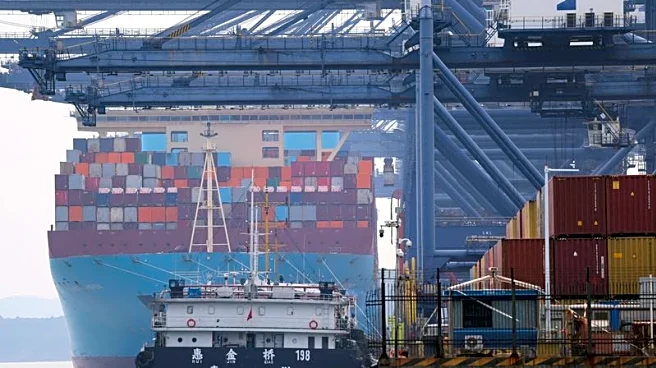What is the story about?
What's Happening?
A magnitude 6.0 earthquake in eastern Afghanistan has resulted in over 800 deaths and 2,500 injuries. The quake primarily affected Kunar province, with significant destruction reported. Rescue operations are underway, but landslides and remote locations complicate efforts. Only a few countries, including Iran, India, Japan, and the EU, have offered aid to the Taliban government. The earthquake adds to Afghanistan's existing humanitarian challenges, with over half the population in need of aid.
Why It's Important?
The earthquake exacerbates Afghanistan's ongoing humanitarian crisis, which includes food shortages and a lack of medical supplies. The Taliban government's limited international recognition and sanctions hinder effective disaster response. The situation underscores the need for international cooperation in addressing humanitarian needs in politically complex regions. The disaster's impact on local communities is severe, with immediate needs for shelter, medical care, and food.
What's Next?
International aid organizations are likely to increase efforts to provide relief, but logistical challenges remain significant. The response from the international community will be crucial in determining the extent of aid and support Afghanistan receives. The situation may prompt discussions on the need for a more coordinated global response to humanitarian crises in politically complex regions.
Beyond the Headlines
The earthquake highlights the vulnerability of Afghanistan's infrastructure and the challenges of providing aid in conflict-affected regions. The disaster raises questions about the role of international organizations in supporting countries with complex political situations. The response to the crisis could set precedents for future humanitarian interventions in similar contexts.
















